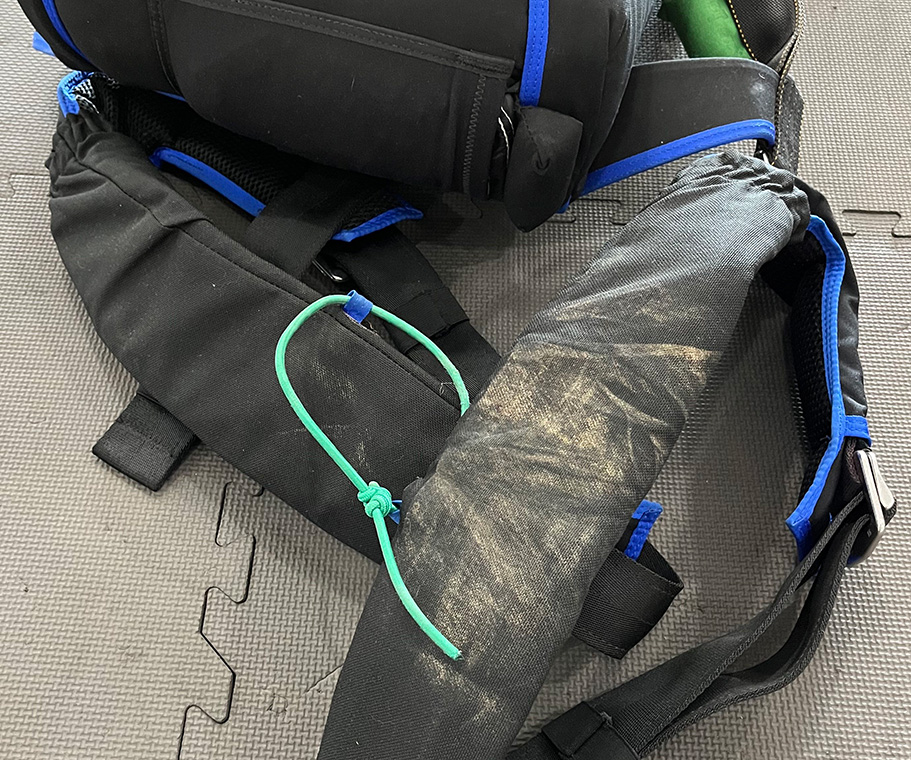 These after-market leg pads are paying for themselves jump by jump.
These after-market leg pads are paying for themselves jump by jump.Leg pads tell a story. Good decisions regarding canopy choice, whether to jump in certain weather conditions and performing landings within your skill range are emblazoned on two wide strips for everyone behind you to see. So is the evidence of overconfidence, downsizing too soon and a whole range of choices leading to slide-in or butt landings.
In the old days, a rig’s leg straps consisted only of webbing. Then manufacturers started dressing them up with protective nylon and adding posher and posher leg pads. Now it’s like a Lexus down there, making that first scuff on your new $4,000 container agonizing.
The outer sheaths of the leg pads that come on contemporary leg straps serve an essential purpose: They provide at least one layer to protect the harness from damage during a bad landing. So, they’re more than just bling. Once they’ve done their job on a poorly executed downwinder, you will need to replace them or at least sew over the worn areas to protect your leg straps.
Factory replacement leg pads cost nearly $200, and that doesn’t include the labor for a Federal Aviation Administration Master Rigger to remove and replace them. Your original leg pads are sewn to the harness. “Needle to harness”—the quick and dirty criterion for what constitutes a major repair according to the FAA—means you need a master rigger. In practice, picking off the old leg pads isn’t for the inexperienced or faint-hearted. One slip, and it’s a new pair of leg straps. Your master rigger must also judge whether the leg straps have had too many pokes with a sewing machine needle to return to service … rare but a consideration.
In a perfect world, you’d stand up every landing ... but it’s skydiving. Inexpensive, slip-on leg pad covers provide good insurance against the occasional lapse in awesomeness since you can brush off much of the caked-in mud or grass you bring back from the landing area after everything dries. If not? Toss them in the washing machine. And if that’s not good enough, they cost only a third of the price or less than sewn-on leg pads and no labor to slide the old ones off and new ones back on. So that’s why you might consider a pair. (Full disclosure: The author makes and sells leg pad covers.)
Most manufacturers offer leg pad covers as an option when ordering new or after the fact, and some come in matching colors, too. Alternatively, anyone who can handle an industrial sewing machine can build them for you, although different rigs have different requirements. And just sliding something over your leg straps and leg pads shouldn’t trip the FAA’s requires-a-rigger switch, senior or master.
You’ll see many great solutions for leg pad covers to protect what protects your leg straps. They also give you the confidence to slide in a landing that maybe you really shouldn’t run out without worrying about a permanent grass stain or blemish. So, leg pad covers help preserve the integrity and value of your rig’s derriere supports. And is there any place that’s more worth it?
Kevin Gibson | D-6943 and FAA-Designated Parachute Rigger Examiner
Rahlmo’s Rigging at Skydive Orange in Virginia